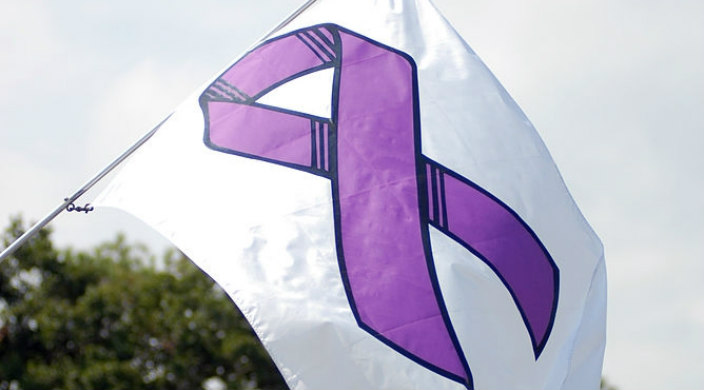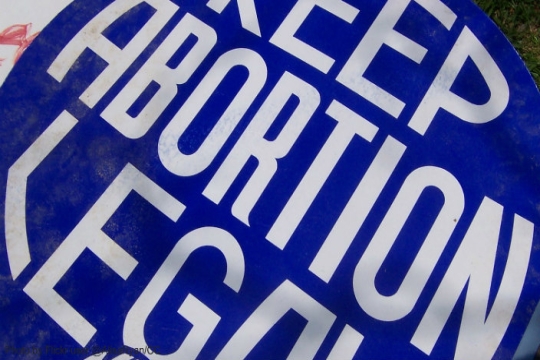
October is Domestic Violence Awareness Month (DVAM) in the U.S. Each of us likely knows someone, either in our Jewish or secular communities, who has been impacted by or is a survivor of domestic violence.
We must recognize that the Jewish community is not immune to this and that all denominations have a lot of work to do to support survivors and promote healing.
In the spring of 2021, Jewish Women International (JWI) released a study, "Domestic Violence in the Jewish Community: A Needs Assessment," which found survivors' needs remain unmet in Jewish communities across denominations. It also found that there is a lack of support systems such as safe housing, legal help, proper training for clergy, or financial aid.
The National Coalition Against Domestic Violence defines domestic violence as, "the willful intimidation, physical assault, battery, sexual assault, and/or other abusive behavior as part of a systematic pattern of power and control perpetrated by one intimate partner against another."
In the U.S., nearly 1 in 4 women and approximately 1 in 7 men report having experienced severe physical violence from an intimate partner in their lifetime. Nearly half of all women and men have experienced psychological aggression, such as humiliating or controlling behaviors. Domestic abuse against trans and non-binary people has not been studied nearly as much; that must change.
While there are no reliable estimates of the incidence or prevalence of domestic abuse in the Jewish community, JWI states, "clinical and other data support the assertion that domestic abuse is a significant and under-recognized issue that impacts Jewish homes and families." JWI reports that more than 90% of Jewish survivors experience emotional/psychological abuse, physical abuse, and financial abuse. JWI also found that over 80% of Jewish survivors experience conflict around custody, isolation, ostracization, and sexual violence.
Jewish survivors experience additional forms of violence unique to our culture, such as partners withholding the as a means of asserting power even after a civil divorce has been granted. JWI's comprehensive culturally specific list of recommendations to better support Jewish survivors includes:
- Provide adequate funding for all Jewish domestic violence programs so that each program is staffed with at least one trauma-informed attorney with expertise in family law to represent survivors.
- Encourage financial institutions to provide support, low-interest loans, cash assistance, and other services that expand long-term economic security.
- Create a funding mechanism that recognizes the impact of financial abuse, most notably how abuse destroys credit and thereby inhibits access to traditional loans, so that survivors can access low-interest loans to allow them to rent or buy housing in their Jewish community.
- All Jewish organizations that serve young people such as camps, schools, youth groups, and athletic teams must have ongoing training to understand and support witnesses, victims, and survivors of domestic violence
- All rabbinical and cantorial seminaries should incorporate victim-centered, trauma-informed domestic violence training into their curricula. Training must be ongoing throughout clergy members' careers.
The lessons from this needs assessment can inform national policy. Public policy is an effective strategy for preventing and addressing domestic or intimate partner violence at societal levels. For instance, financial abuse (limiting access to assets, concealing financial information, etc.) is a common tactic used by abusers to gain power and control. The impact of sporadic employment and legal issues makes it more difficult to obtain economic security and independence. Economic insecurity is also a risk factor for increased violence.
When survivors have reliable access to resources to build economic stability and resiliency, they are more likely to remain safe. NNEDV supports legislation for paid leave that would allow victims to take time off to address their health or attend to critical safety needs. NNEDV also supports initiatives to increase access to unemployment insurance, advocates for equal pay, pushes to increase the minimum wage, campaigns for accessible childcare, and works to provide survivors access to social safety nets.
The Reform Movement and Women of Reform Judaism also supports these policies, recently backing the Paycheck Fairness Act, which aims to end pay discrimination and the Raise the Wage Act, which would increase the minimum wage. The 118th Congress must pass this critical legislation to enable more economic stability and security for survivors and their children. Support survivors by taking action and telling your members of Congress to:
To learn more about DVAM, JWI's Needs Assessment, and resources to address gender-based violence, check out:
- Jewish Women International's "Domestic Violence in the Jewish Community: A Needs Assessment"
- Women of Reform Judaism's initiative, " WRJ says STOP: An Initiative Against Sexual Harassment and Assault " to address gender-based harassment and assault in Jewish institutions and create safe spaces in Jewish communities.
- National Resource Center on Domestic Violence
- National Coalition Against Domestic Violence
Related Posts

Continuing to Educate and Empower People Together

The Path Forward on Abortion Resource Guide
%20-%20square4a84.jpg)

